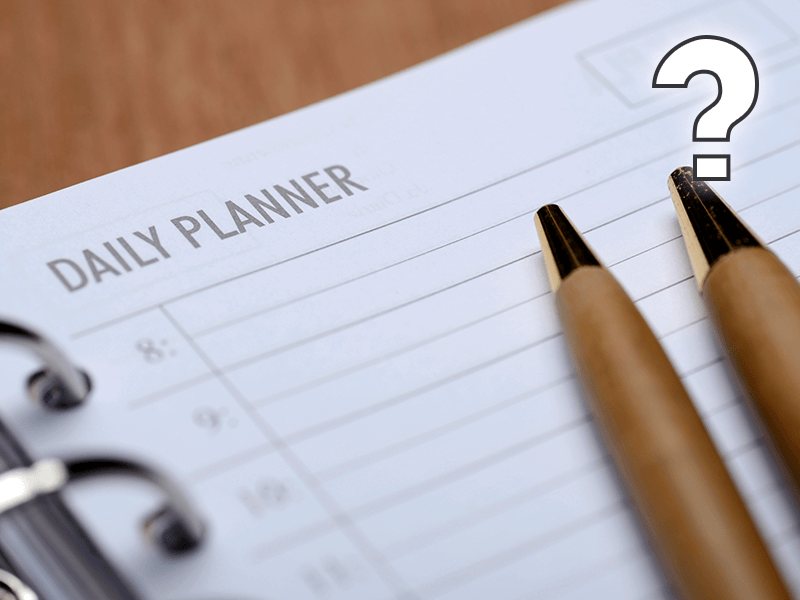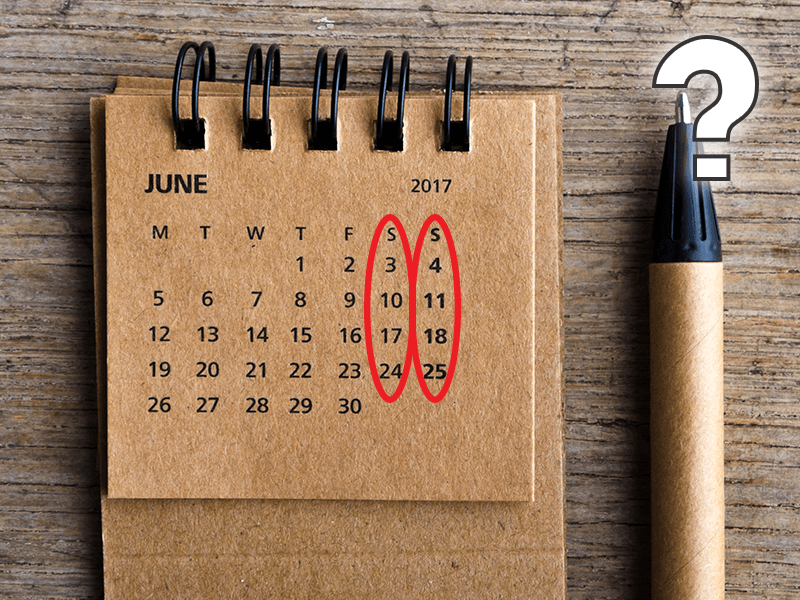
Goal
I can use present continuous tense for future plans.
未来の予定について表す現在進行形を使うことができるようになる。
Grammar Point
Use the present continuous tense to talk about set future plans.
未来の予定について話すための現在進行形の使い方を学びましょう。-
The form is be + [present participle]. To make the present participle, add -ing to the dictionary form of the verb*.
形は<be+現在分詞>です。現在分詞を作るには、動詞の原形*の語尾に -ing をつけます。
*for verbs that end in -e, drop the -e and add –ing
*-e で終わる動詞は -e をとって –ing をつけます*for most verbs that end in [consonant] + [vowel] + [consonant] (not w, x, or y), double the last consonant and add –ing
*語尾が<子音字+母音字+w, x, y 以外の子音字>で終わるほとんどの動詞は、最後の子音字を重ねて、–ing をつけますDICTIONARY FORM | PRESENT PARTICIPLE |
|---|---|
|
go |
going |
|
do |
doing |
|
have |
having |
|
move |
moving |
|
stop |
stopping |
|
run |
running |
横にスワイプ
I am going to Okinawa on Saturday.
私は土曜日に沖縄に行きます。
He is having a party tonight.
彼は今夜パーティを開きます。
We are running a marathon tomorrow.
私たちは明日マラソンを走ります。
-
In casual spoken and written English, be is usually contracted with subject pronouns. Please try to use contracted forms throughout this lesson.
カジュアルな話し言葉・書き言葉では、be動詞は通常、<人称代名詞の主格+be動詞>の短縮形で使われます。このレッスンを通して、短縮形を使ってみましょう。
FORMAL ENGLISH | CASUAL ENGLISH |
|---|---|
|
I am |
I’m |
|
you are |
you’re |
|
he is |
he’s |
|
she is |
she’s |
|
it is |
it’s |
|
we are |
we’re |
|
they are |
they’re |
横にスワイプ
I’m going to Okinawa on Saturday.
私は土曜日に沖縄に行きます。
He’s having a party tonight.
彼は今夜パーティを開きます。
We’re running a marathon tomorrow.
私たちは明日マラソンを走ります。
-
Use the present continuous to ask questions about future plans.
現在進行形の疑問文を使って、未来の予定について質問しましょう。
Are you going to Okinawa on Saturday?
あなたは土曜日に沖縄に行きますか?
When is he having a party?
彼はいつパーティを開きますか?
What are you doing tomorrow?
あなたは明日何をしますか?
-
Use short phrases to positively answer yes/no questions about future plans.
未来の予定についての yes/no 疑問文に、短い文を使って肯定的に答えましょう。
POSITIVE ANSWERS
Yes, I am.
Yes, you are.
Yes, he is.
Yes, she is.
Yes, it is.
Yes, we are.
Yes, they are.
Q: Are you going to Okinawa on Saturday?
A: Yes, I am.
Q: あなたは土曜日に沖縄に行きますか?
A: はい、行きます。
-
Use short phrases to negatively answer yes/no questions about future plans too.
未来の予定についての yes/no 疑問文に、短い文を使って否定的に答えましょう。
NEGATIVE ANSWERS
No, I’m not.
No, you aren’t.
No, he isn’t.
No, she isn’t.
No, it isn’t.
No, we aren’t.
No, they aren’t.
Q: Are you going to Okinawa on Saturday?
A: No, I’m not.
Q: あなたは土曜日に沖縄に行きますか?
A: いいえ、行きません。
-
Use not with the present continuous tense to talk about future plans that will definitely not happen.
未来の予定に関する否定文を作るには、現在進行形と not を使います。
I’m not going to Okinawa on Saturday.
私は土曜日に沖縄に行きません。
He’s not having a party tonight.
彼は今夜パーティを開きません。
We’re not running a marathon tomorrow.
私たちは明日マラソンを走りません。
Be careful: You can use the present continuous tense to talk about both set future plans and present ongoing actions. If you don’t use a time expression and the time is not obvious, most people will assume you are talking about the present, not the future.
I’m running a marathon tomorrow. (time expression = future)
私は明日マラソンを走ります。 (時の表現=未来)
Q: What are you doing tomorrow?
A: I’m running a marathon. (time is obvious = future)
Q: あなたは明日何をしますか?
A: 私はマラソンを走ります。 (時が明らか=未来)
I’m running a marathon. (no time expression + time is not obvious = present)
私はマラソンを走っています。 (時の表現がない+時が明らかではない=現在)

Sentence Builder
I’m taking a trip on Saturday.
-
She’s moving to Singapore next month.
-
Are you working today?
-
Yes, they are.
-
My best friend is having a party on Sunday.
-
We’re not going out this weekend.

Practice
Make new sentences using the grammar point. Change the future tense sentences into present progressive sentences.
グラマーポイントを用いて新しい文を作りましょう。未来形の文章を現在進行形の文章に変えましょう。
I’m going to take a break at five o’clock.

-
I’m going to take a piano lesson on Thursday.

-
She’s not going to cook dinner tomorrow.

-
We’re going to run a half marathon next month.

-
What time are you going to wake up tomorrow?

-
Are you going to buy your dad a Christmas present this year?

-
She’s not going to come home this weekend.

-
They’re going to go to bed early tonight.

-
I’m going to have dinner with my friend after work.

-
What are you going to do tomorrow afternoon?

-
I’m not going to have a birthday party this year.

Q&A
グラマーポイントとご自身についての情報を用いて質問に答えましょう。
-
What are you doing next weekend?
-
What time are you waking up tomorrow?
-
Are you meeting your friends tomorrow?
-
What are you doing for dinner tomorrow?
-
What are you doing after this lesson?




Feedback
I can use present continuous tense for future plans.
未来の予定について表す現在進行形を使うことができるようになる。LESSON GOAL ACHIEVEMENT
|
4 |
3 |
2 |
1 |
|---|---|---|---|
|
You were able to use the grammar point very smoothly and naturally. Great job! グラマーポイントをとても自然でスムーズに使うことができました。大変良くできました! |
You were able to use the grammar point with minimal difficulty. |
You were able to use the grammar point but struggled a lot. We recommend taking |
You were not able to use the grammar point. Please take the |
PERSONALIZED FEEDBACK
ACCURACY
正確さ文法が正しく使えているかどうか
